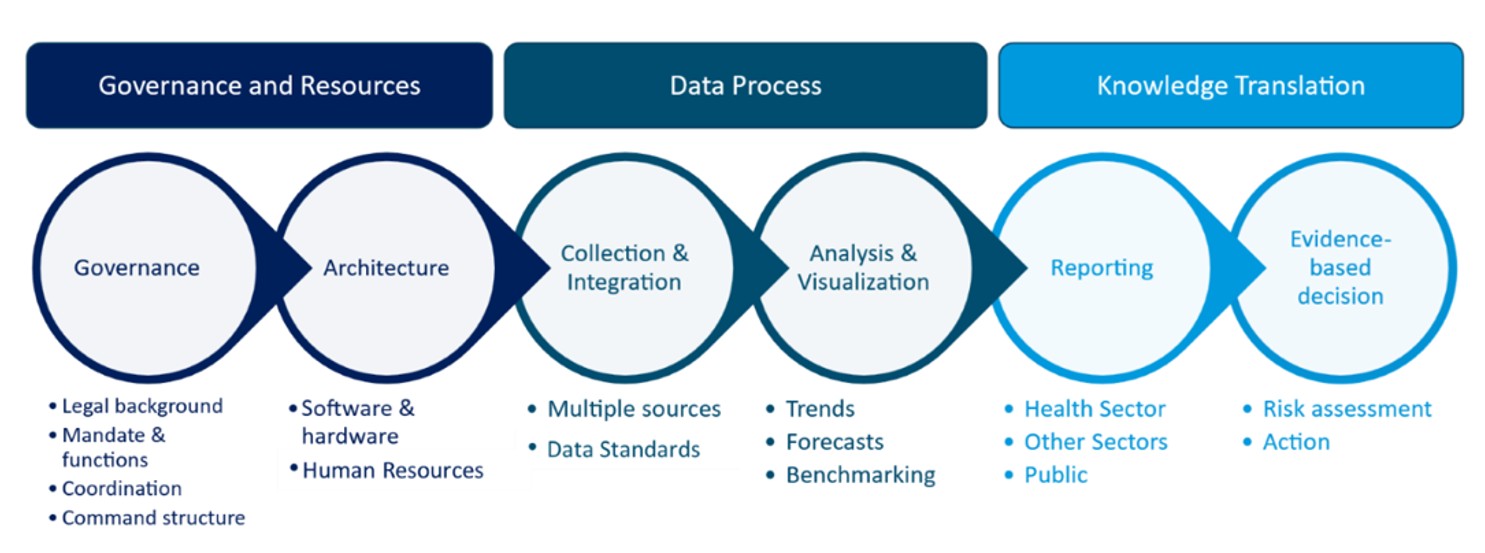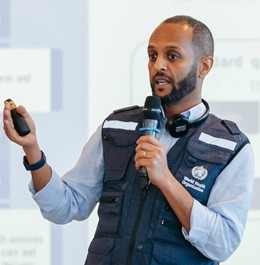
Chairs: Aron Aregay & Hugo Monteiro
Date: Saturday, 26th July
Time: 9:00 – 10:30
Mission and objectives

The coronavirus pandemic underscored the need to strengthen the emergency components of health information systems (HIS) at national, regional, and global levels. Gaps in pandemic-related data revealed significant challenges within existing national and subnational information management systems. For example, during the pandemic, challenges arose when public health professionals faced difficulties in accessing critical data due to unclear legal frameworks, delaying effective incident management. Additionally, unstructured data formats further hindered timely analysis, while inconsistent and unsystematic event-based data collection limited real-time situational awareness. Limited humanitarian data is accessible to responders at times of disaster, and the need for an open-source platform like humanitarian data exchange1 is crucial.
To enable Member States to mount rapid, data-driven responses, robust information system architecture is essential. These systems must efficiently manage data to support emergency responses, produce actionable information for incident managers and decision-makers, and be adaptable and scalable to cope with high information volumes during crises. The ability to extract knowledge and insights from data, translate them into practical and effective policies, and inform timely interventions is a decisive factor in the capabilities of Member States to respond appropriately to an emergency.
Intended Audience
- Ministry of Health and national stakeholders from WHO European Region
- Public health professions – those involved in public health emergency preparedness and response
- Academia, computer and data scientists, NGOs,
- European Union representatives, e.g. DG Sante, DG HERA, etc.
Expected Outcome
- Public Health stakeholders are aware of how ERIMS could enhance public health emergency response – more countries plan to assess their ERIMS and develop an improvement plan
- Opportunities to enhance ERIMS tool with input from external participants from academia, digital health startups, and other stakeholders
- Establish a network of professionals for future collaboration and joint initiatives
Format
| Time | Session | Speaker(s) |
|---|---|---|
| Session Part 1: Why ERIMS | ||
| 09:00 – 09:35 | Why ERIMS: evolution of ERIMS | Hugo Monteiro |
| 09:35 – 09:45 | Q&A and discussion | All participants |
| Part 2: What have we learned conducting ERIMS Assessment | ||
| 09:45 – 10:20 | Overview of the assessment, methodology, and observations from selected countries (Potentially one country may be able to present virtually or in person) | Aron Aregay |
| 10:20 – 10:30 | Q&A and discussion | All participants |
Speakers

WHO European Regional Office

Portuguese Ministry of Health
